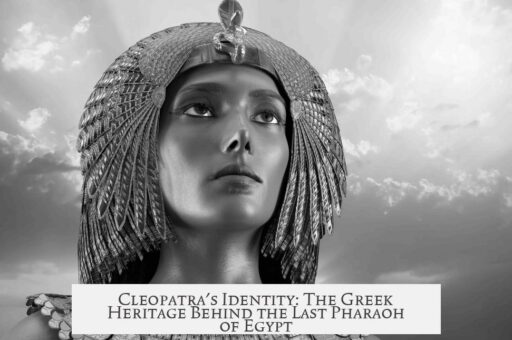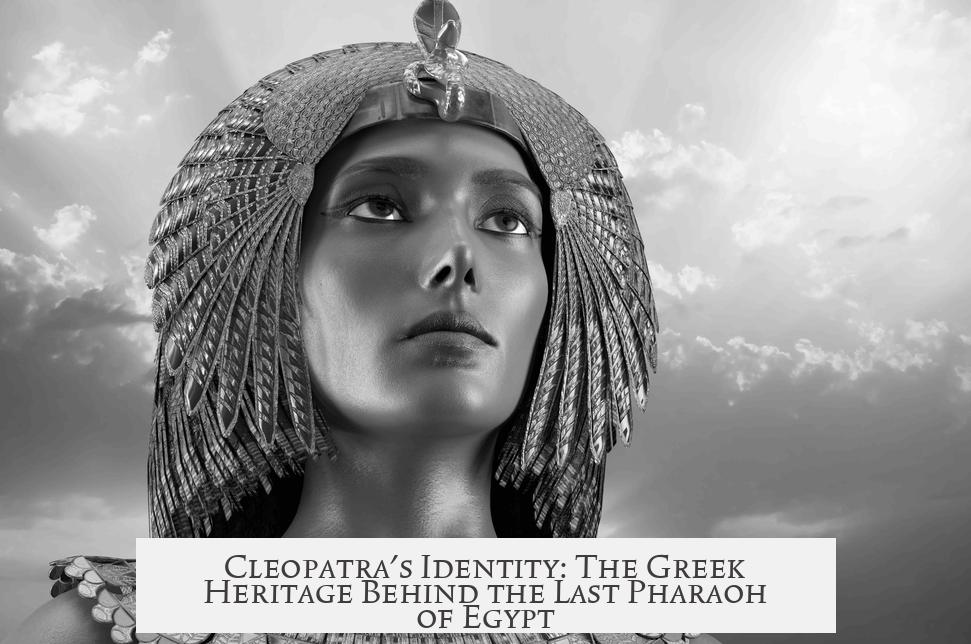People say that Cleopatra was Greek rather than Egyptian because her identity, culture, and lineage were rooted in Greek ethnic and political traditions, despite her reign over Egypt. She belonged to the Ptolemaic dynasty, a Macedonian Greek royal family that ruled Egypt after Alexander the Great’s conquests. Cleopatra’s ethnic self-definition, language, and cultural practices aligned with Greek heritage rather than native Egyptian identity.
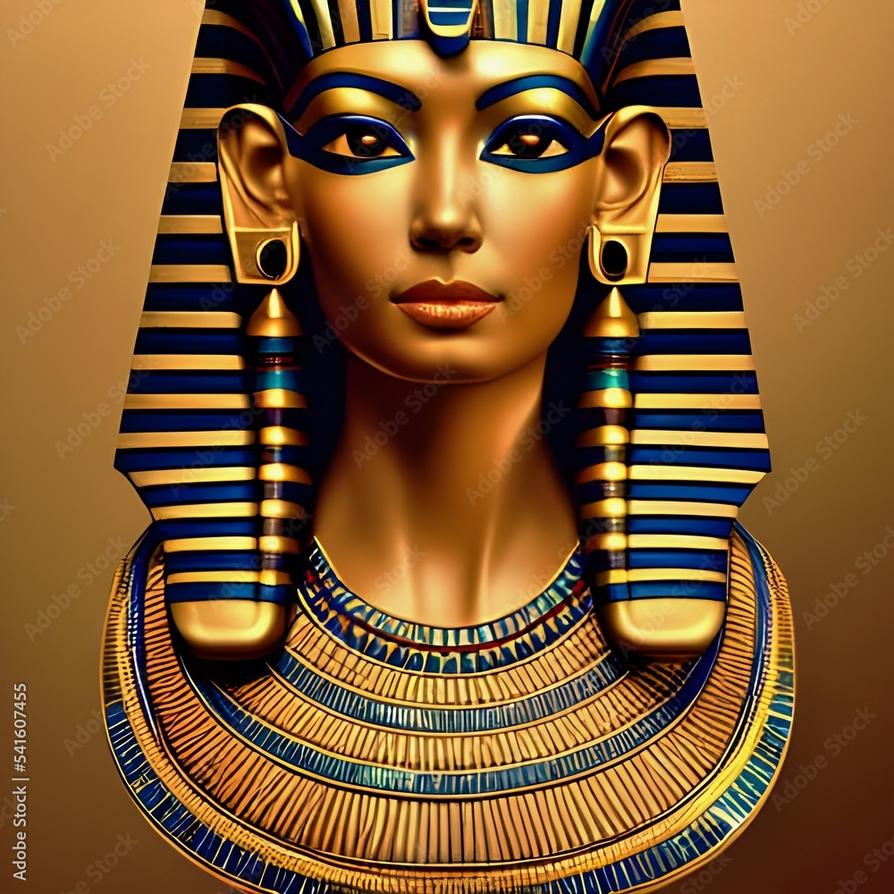
The ancient concept of “Greek” and “Egyptian” refers mainly to ethnic identity tied to language and customs, not merely place of birth or modern nationalism. For instance, the Greeks of Magna Graecia in Italy were still seen as Greeks because they spoke Greek and identified as Hellenes. In a similar sense, the Ptolemaic dynasty, though ruling Egypt for centuries, remained Greek in ethnicity.
The Ptolemies governed Egypt but did not take on Egyptian citizenship, nor did they fully assimilate as Egyptians. They adopted some Egyptian customs and symbolism to legitimize their rule, such as dressing in Egyptian style and embracing rituals like sibling marriage to mimic Egyptian traditions and royal status. This cultural borrowing was practical and political, yet they maintained their Greek identity in diplomacy and court life.
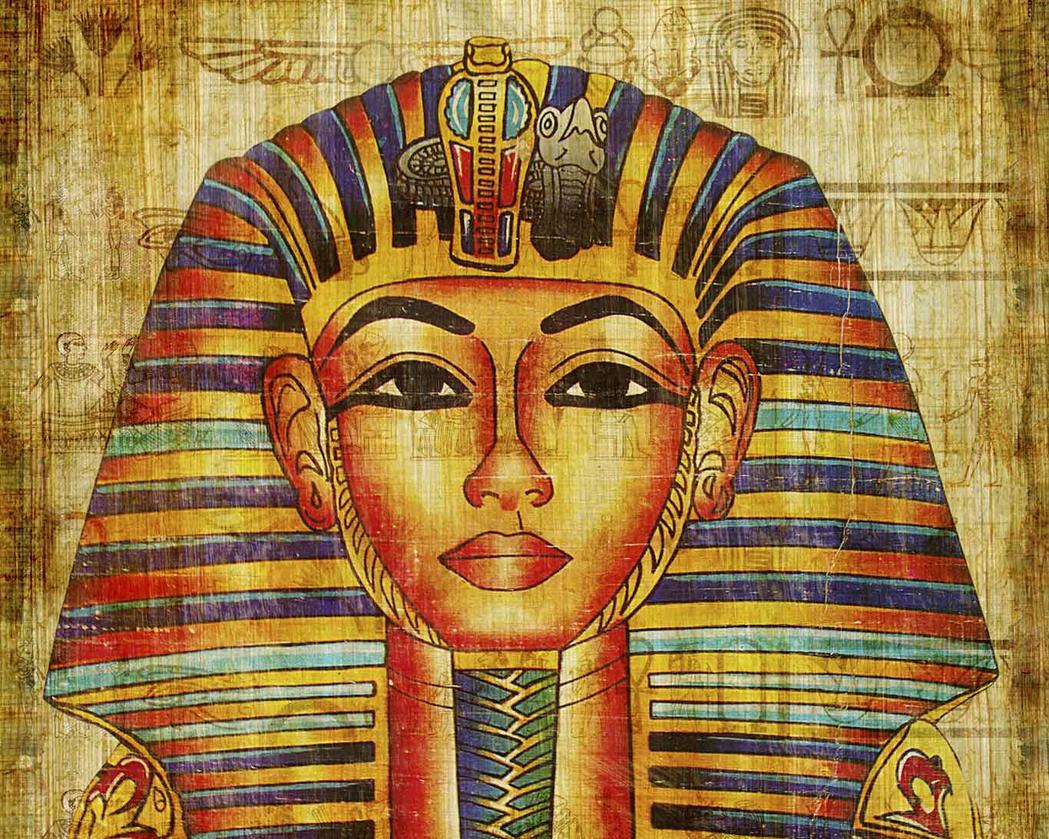
Cleopatra considered herself Macedonian and descended from Ptolemy I Soter, who was linked to Alexander the Great. Her native language was Greek. Until her lifetime, Greek was the exclusive court language of Alexandria, the capital of Ptolemaic Egypt. Though she eventually learned multiple languages, including Egyptian, to communicate better with her subjects, Greek remained her mother tongue and the language of governance.
The Ptolemaic regime maintained a social and political distinction between Macedonian Greeks and native Egyptians. Greeks held privileged status, while Egyptians, though the ethnic majority, experienced discrimination and occasionally rebelled against Ptolemaic rule. This separation underlines why the Ptolemies, including Cleopatra, were not seen as Egyptian by their subjects or themselves.
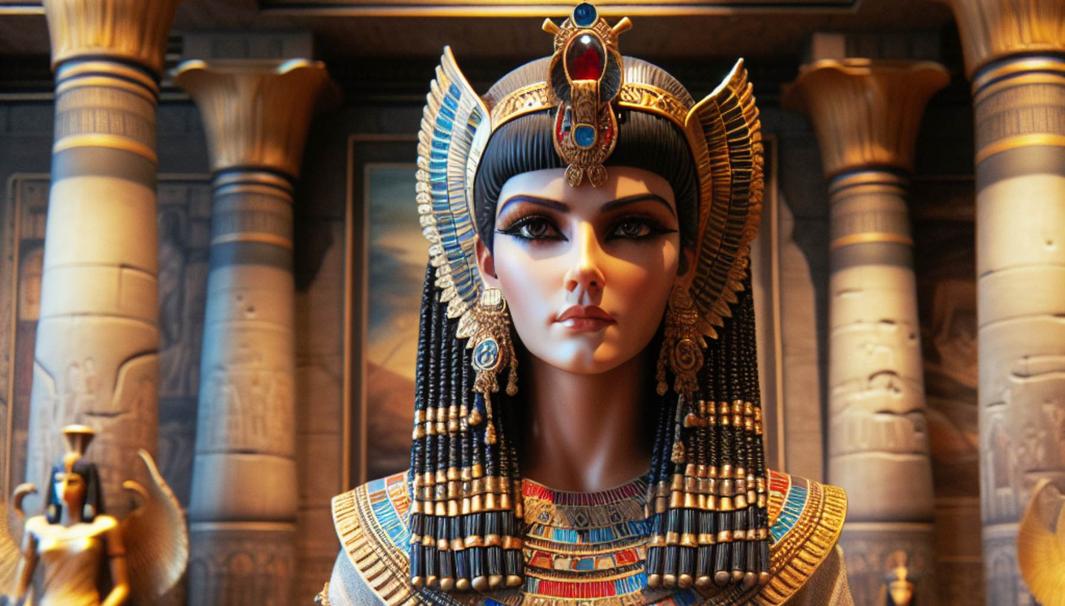
Cleopatra’s religious and cultural practices reflected a syncretism between Greek and Egyptian traditions. She took on the formal role of priestess of Isis, a major Egyptian deity, to show respect for Egyptian traditions and her role as Pharaoh. However, her personal religious affiliation favored Serapis, a Greco-Egyptian god worshipped primarily in Alexandria. She commonly wore Greco-Roman attire, contrary to many modern depictions showing her in traditional Egyptian dress.
| Aspect | Greek (Ptolemaic) Traits | Egyptian Traits |
|---|---|---|
| Ethnicity | Macedonian Greek descent | Native Egyptian majority population |
| Language | Greek (native language of Cleopatra) | Egyptian (majority language of subjects) |
| Governance | Hellenistic court in Alexandria | Traditional Pharaoh role adopted ceremonially |
| Religion | Serapis (Greco-Egyptian fusion) | Role as priestess of Isis |
| Cultural Dress | Greco-Roman fashions | Egyptian royal dress (adopted symbolically) |
Her Greek name, “Cleopatra,” further affirms her ethnic and cultural origins. Unlike native Egyptian royal names, it derives from Greek and reflects the dynasty’s Hellenistic roots. At the time, identity was never nationalized in the modern sense but remained closely tied to language, culture, and ancestry.
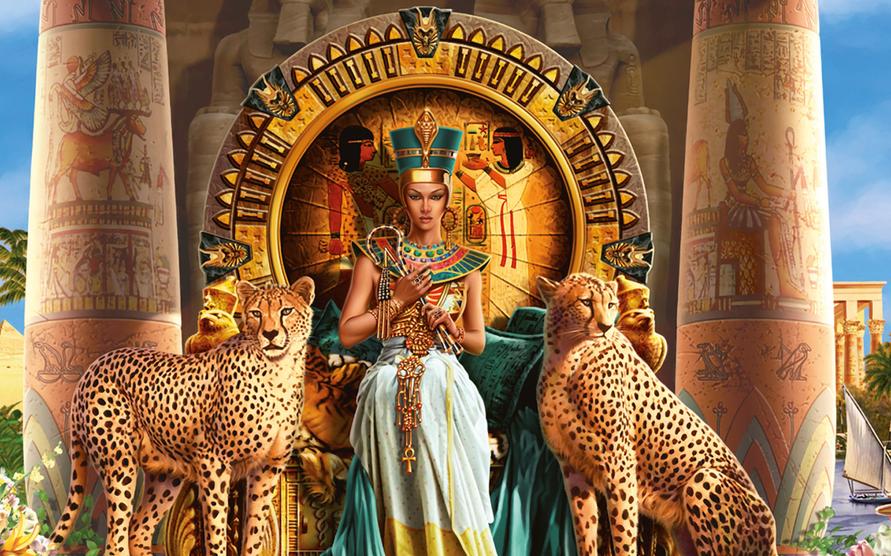
With the Roman conquest and later cultural changes, identities in Egypt blurred. The distinctions between Greeks and Egyptians weakened over time. However, during Cleopatra’s reign, the divide was strong and influenced social structures and royal self-identification.
- Cleopatra’s Ptolemaic dynasty was Greek by ethnicity and culture.
- Greek was Cleopatra’s native language and the court’s official language.
- The Ptolemies adopted Egyptian customs but kept Greek identity for political purposes.
- Egyptians and Greeks remained socially and politically distinct during her reign.
- Cleopatra’s religious roles reflected syncretism but favored Greek traditions.
- Her Greek lineage, language, and court life define why she is considered Greek.
Why do people say that Cleopatra was Greek, rather than Egyptian?
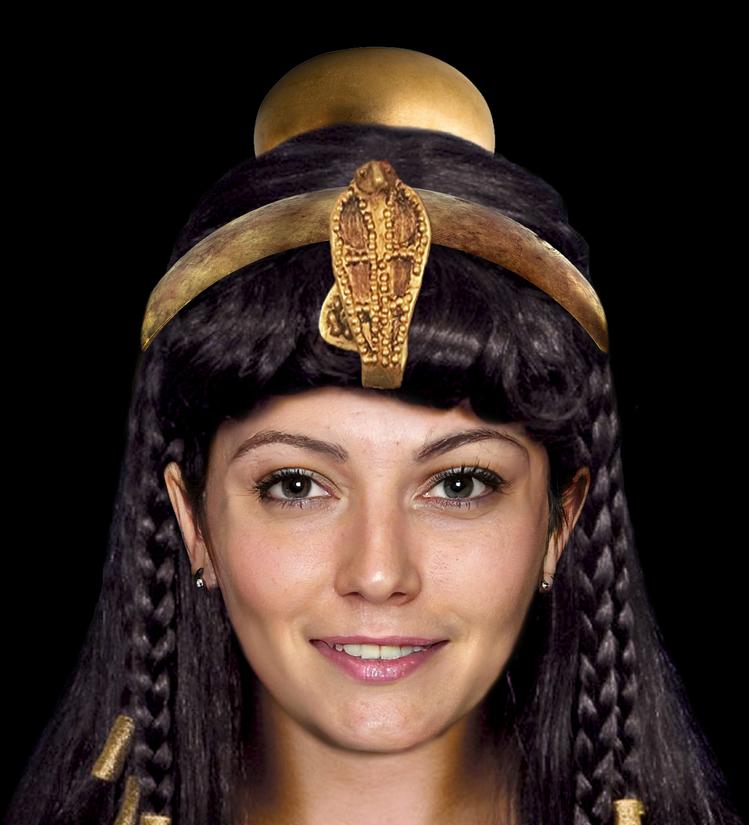
Simply put, Cleopatra was Greek because she descended from the Macedonian Ptolemaic dynasty that ruled Egypt after Alexander the Great conquest. Her language, cultural identity, and self-identification were Greek, not Egyptian. But, of course, there’s more to this story than just a line in a history book.
Let’s journey back in time and unravel why Cleopatra, the last active Pharaoh of Egypt, was Greek rather than Egyptian.
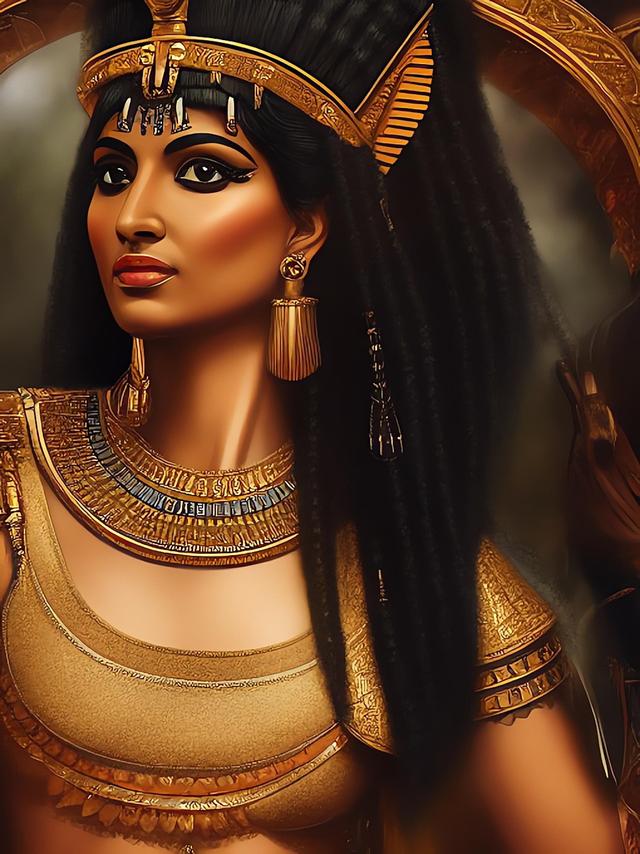
Ethnicity in the Ancient World: Language and Identity Over Geography
Today, when we say someone is Greek or Egyptian, we often think about where they were born or which country they belong to—modern, political definitions. In ancient times, the story was different. Ethnic identity revolved primarily around the language spoken and how people identified themselves rather than their birthplace.
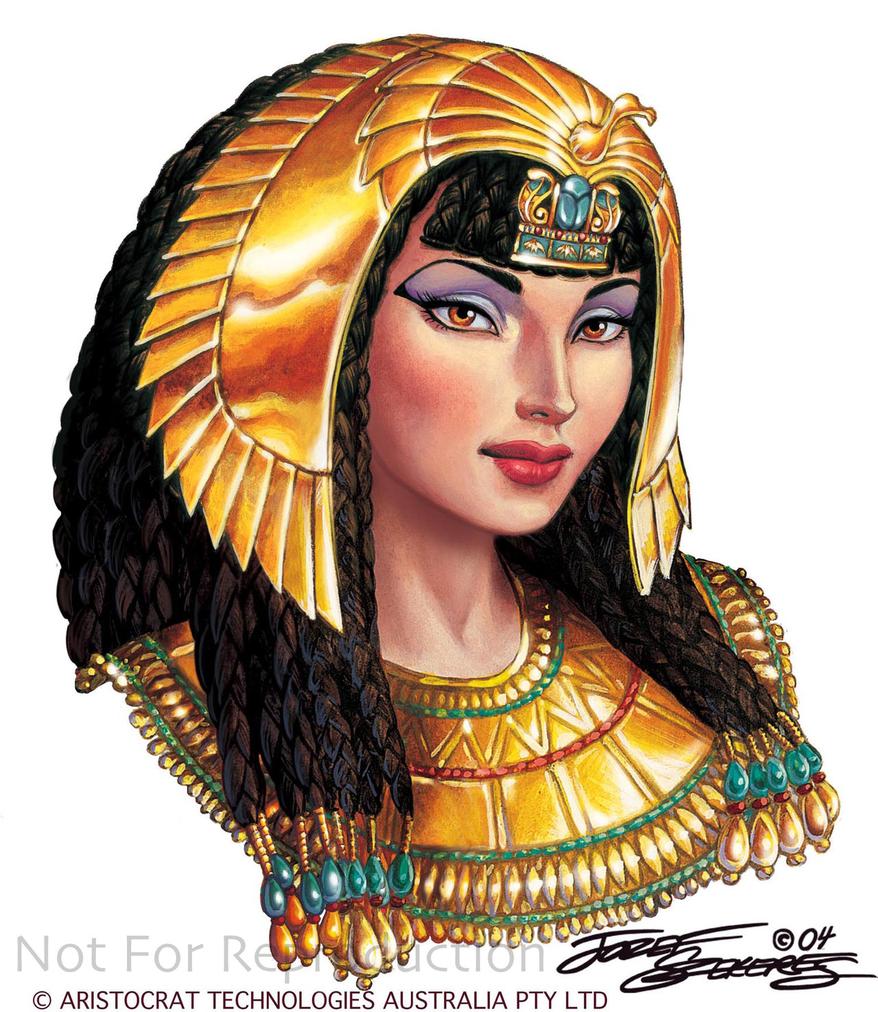
For example, Greeks living in southern Italy (known as Magna Graecia) were still “Greek” because they spoke Greek and called themselves Hellenes, even though they were far from today’s Greece. Similarly, Cleopatra and her dynasty were Greek because they spoke Greek and aligned culturally with Greek traditions, despite reigning over Egypt.
The Macedonian Ptolemaic Bloodline
Cleopatra was born into the Ptolemaic dynasty—a family of Macedonian origin that ruled Egypt after Alexander the Great’s conquest around 323 BCE. This dynasty stretched its rule for almost three centuries, creating a fusion of occupying power and local traditions, but the rulers never stopped seeing themselves as Greek.
The Ptolemies ruled Egypt like Greek kings. They lived in Alexandria, a city founded by Alexander the Great himself, where Greek culture, language, and politics dominated. Until Cleopatra’s reign, the court spoke exclusively Greek.
Cleopatra proudly considered herself Macedonian, a proud descendant of Ptolemy I Soter, a general and probably Alexander’s stepbrother or cousin. Her mother tongue was Greek, not Egyptian—a fact that surprises many who picture her in traditional Egyptian regalia.
Adopting Egyptian Traditions—But Only on the Surface
Here’s where it gets interesting. The Ptolemies were clever rulers. To strengthen their grip on Egypt, they borrowed Egyptian customs, religious roles, and iconography. Cleopatra took on the role of priestess of Isis, wore Egyptian-style royal outfits for ceremonial purposes, and engaged in practices like sibling marriage, which were Egyptian royal traditions.
But did they become Egyptian? No. This cultural borrowing was strategic, not a matter of ethnic identity. The Ptolemies never sought Egyptian citizenship or claimed an Egyptian ethnic identity. They were conquerors, ruling from a position of Greek elite privilege.
The Stark Divide Between Greeks and Egyptians
The difference between the ruling Greeks/Macedonians and the native Egyptians was no joke. Greeks spoke Greek and formed a privileged elite, occupying the highest court positions and enjoying exclusive access to power and wealth. Egyptians were largely excluded and even faced discrimination.
This ethnic divide led to uprisings by the Egyptian majority, which were violently suppressed by the ruling Greek elite. Cleopatra’s identity as a Greek queen was part of a broader socio-political reality where Greeks and Egyptians lived distinctly separate lives—different languages, customs, and legal rights.
The Cultural Melting Pot After Cleopatra’s Era
Fast forward past Cleopatra’s lifetime: the Roman conquest complicated identity even more. Egyptians, Greeks, Jews, Romans—all these groups lived in the same space, intermixing, and blending traditions. The strict ethnic categories began to blur.
Later, the Islamic conquest added another layer of identity with religion becoming a primary marker. By then, ancient ethnic labels lost much of their former importance, merging into broader cultural and religious identities that led to today’s Egyptians and Copts.
Cleopatra’s Personal Cultural Flair: Greek at Heart
Despite adopting some Egyptian religious titles like the priestess of Isis, Cleopatra’s true cultural expression was Greek. She preferred Greco-Roman fashion, not the Egyptian dress that Hollywood loves to portray. Her very name is Greek, meaning “glory of the father.”
She was a cosmopolitan woman who spoke nine languages, including Egyptian, Hebrew, and Latin, but her heart, court, and sense of identity remained Greek.
Modern Nationalism vs. Ancient Ethnic Identity
One common trap is to judge Cleopatra’s identity by today’s standards of nationality. But ancient ethnic identities were more about language, culture, and kinship than borders or “nationality.”
Calling Cleopatra Egyptian as we think of it now is like saying someone from London today is Swiss—both geographically possible but culturally off.
Ancient “Greek” identity was closer to belonging to a cultural-linguistic group rather than a defined nation-state. Cleopatra was ethnically Greek, just ruling over Egypt.
Why Does This Matter Today? Let’s Think About It
Why does it matter if Cleopatra was Greek or Egyptian? Because it challenges how we think about history, identity, and culture. It shows us how rulers use culture to legitimize power. It highlights the complexities of ethnicity in multicultural societies. And, quite frankly, it reminds us that peoples and identities are never simple.
Cleopatra’s story also reveals the difference between external appearances and internal identity. She adopted Egyptian customs as a political tool but stayed true to her Greek roots with pride.
Isn’t it fascinating how history’s greatest queen balanced these identities? And it also makes you wonder: how comfortable are we with our own cultural identities today? Are we more flexible or more rigid than Cleopatra might have been?
Summary Table: Cleopatra’s Identity at a Glance
| Aspect | Details |
|---|---|
| Ethnicity | Macedonian Greek (Ptolemaic dynasty) |
| Language | Greek native tongue; learned 9 languages including Egyptian |
| Cultural Identification | Greek; viewed self as Macedonian descendent of Alexander’s family |
| Adoption of Egyptian Customs | Religious and ceremonial (priestess of Isis), not ethnic assimilation |
| Political Role | Queen of Egypt with Hellenistic court at Alexandria |
| Modern Misconception | Often perceived as Egyptian queen due to ruling location and Egyptian symbolism |
Final Thoughts
So, when people say Cleopatra was Greek rather than Egyptian, they’re not just splitting hairs about nationality. It’s about understanding the historical and cultural context that shaped her identity.
Her story reminds us to look beyond our modern labels. Cleopatra was a part of the fascinating blend of cultures that made the ancient Mediterranean world so vibrant—and complicated. She was Macedonian Greek, ruling Egypt, embodying the best of both worlds while carefully walking the line between conqueror and native queen.
Next time you see a dramatic movie scene of Cleopatra draped in Egyptian linen, remember: behind that costume was a Greek-speaking queen who spoke nine languages, wore Greco-Roman fashion, and ruled with a complex identity centuries before modern nationalism made things so simple (or messy!).
Why is Cleopatra considered Greek if she ruled Egypt?
Cleopatra belonged to the Ptolemaic dynasty, which was of Greek Macedonian origin. They ruled Egypt but identified as Greek by language, culture, and foreign relations.
Did Cleopatra speak Egyptian as her native language?
No. Her native tongue was Greek. She later learned Egyptian and several other languages, but Greek was her primary language.
Why did the Ptolemies adopt Egyptian customs if they were Greek?
They adopted Egyptian dress and ceremonies mainly to legitimize their rule and gain privileges. But they never claimed Egyptian citizenship or identity.
How different were Greeks and Egyptians in Cleopatra’s time?
Greeks, including the ruling Ptolemies, formed a privileged elite. Egyptians were the majority but faced discrimination and were rarely part of the ruling class.
Was Cleopatra culturally Egyptian or Greek?
She embraced some Egyptian religious roles but primarily followed Greek traditions. Her name was Greek, and she dressed in Greco-Roman fashion, not traditional Egyptian attire.
